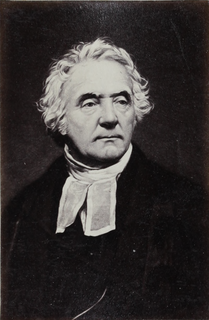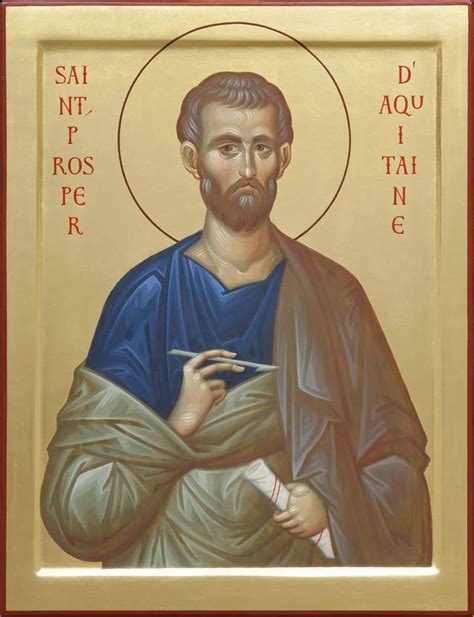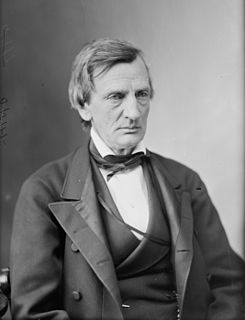Top 587 Redemption Quotes & Sayings - Page 10
Explore popular Redemption quotes.
Last updated on April 15, 2025.
Well, part of it is the general fascination with the Amish. It's an extremely popular genre and Beverly Lewis just happens to have the market cornered. She is the bestselling author in this genre. We had actually optioned another one of her Amish books, The Redemption of Sarah Cain. We retitled it Saving Sarah Cain and it did extremely well for Lifetime so we pursued more of her novels.
The gospel is unintelligible to most people today, especially in the West, because their own particular stories are remote from the story of creation, fall, redemption, and consummation that is narrated in the Bible. Our focus is introspective and narrow, confided to our own immediate knowledge, experience, and intuition. Trying desperately to get others, including God, to make us happy, we cannot seem to catch a glimpse of the real story that gives us a meaningful role.
I think Jesus is saying, Look, you guys are running around like monkeys trying to get people to clap, but people are fallen, they are separated from God, so they have no idea what is good or bad, worthy to be judged or set free, beautiful or ugly to begin with. Why not get your glory from God? Why not accept your feelings of redemption because of His pleasure in you, not the fickle and empty favor of man? And only then will you know who you are, and only then will you have true, uninhibited relationships with others.
The Internet causes billions of images to appear on millions of computer monitors around the planet. From this galaxy of sight and sound will the face of Christ emerge and the voice of Christ be heard? For it is only when his face is seen and his voice heard that the world will know the glad tidings of our redemption. This is the purpose of evangelization. And this is what will make the Internet a genuinely human space, for if there is no room for Christ, there is no room for man.
He who is himself crossed in love is able from time to time to master his passion, for he is not the creature but the creator of his own misery; and if a lover is unable to control his passion, he at least knows that he is himself to blame for his sufferings. But he who is loved without reciprocating that love is lost beyond redemption, for it is not in his power to set a limit to that other's passion, to keep it within bounds, and the strongest will is reduced to impotence in the face of another's desire.
The Church is the Church in her worship. Worship is not an optional extra, but is of the very life and essence of the Church. ...Man is never more truly man than when he worships God. He rises to all the heights of human dignity when he worships God, and all God's purpose in Creation and in Redemption are fulfilled in us as together in worship we are renewed in and through Christ, and in the name of Christ we glorify God.
Thousands of men breathe, move, and live; pass off the stage of life and are heard of no more. Why? They did not a particle of good in the world; and none were blest by them, none could point to them as the instrument of their redemption; not a line they wrote, not a word they spoke, could be recalled, and so they perished--their light went out in darkness, and they were not remembered more than the insects of yesterday. Will you thus live and die, O man immortal? Live for something.
I think Black Nativity movie has a very clear message. It's about a family in crisis facing some of the very familiar struggles we face in our communities. It's really about love, redemption, forgiveness, faith and family, the things that have gotten us through so many hard times, and that continue to get us through them. When times are hard, we need each other.
What makes humans human is precisely that they do not know the future. That is why they do the fateful and amusing things they do: who can say how anything will turn out? Therein lies the only hope for redemption, discovery, and-let’s be frank—fun, fun, fun! There might be things people will get away with. And not just motel towels. There might be great illicit loves, enduring joy, faith-shaking accidents with farm machinery. But you have to not know in order to see what stories your life’s efforts bring you. The mystery is all.
Grace abounds in contemporary movies, books, novels, films and music. If God is not in the whirlwind, He may be in a Woody Allen film, or a Bruce Springsteen concert. Most people understand imagery and symbol better than doctrine and dogma. Images touch hearts and awaken imaginations. One theologian suggested that Springsteen's 'Tunnel of Love' album, in which he symbolically sings of sin, death, despair and redemption, is more important for Catholics than the Pope's last visit when he spoke of morality only in doctrinal propositions.
By a beautiful paradox of Divine love, God makes His Cross the very means of our salvation and our life. We have slain Him; we have nailed Him there and crucified Him; but the Love in His eternal heart could not be extinguished. He willed to give us the very life we slew; to give us the very Food we destroyed; to nourish us with the very Bread we buried, and the very Blood we poured forth. He made our very crime into a happy fault; He turned a Crucifixion into a Redemption; a Consecration into a Communion; a death into Life Everlasting
Now writing is just working your way toward the border that the innermost secret draws around itself, and to cross that line would mean self-destruction. But writing is also an attempt to respect the borderline only for the truly innermost secret, and bit by bit to free the taboos around that core, difficult to admit as they are, from their prison of unspeakability. Not self-destruction but self-redemption. Not being afraid of unavoidable suffering.
Hell is out of fashion - institutional hells at any rate. The populated infernos of the 20th century are more private affairs, the gaps between the bars are the sutures of one's own skull. A valid hell is one from which there is a possibility of redemption, even if this is never achieved, the dungeons of an architecture of grace whose spires point to some kind of heaven. The institutional hells of the present century are reached with one-way tickets, marked Nagasaki and Buchenwald, worlds of terminal horror even more final than the grave.
I couldn't possibly tell you. But I would say be very careful with your suppositions. People are so quick to jump. That's what I love about playing the character. People are so quick to draw conclusions about who he is. The whole thing about Loki is that he's dancing on this liminal line between redemption and destruction. Just be very careful about drawing conclusions based on what you see.
Once in a rare while, you get to read a story of such breathtaking beauty and intelligence that you remember why you love to read. The Anatomy Lesson is just such a novel. In stunning prose, Nina Siegal animates Rembrandt's first masterpiece, spinning a deeply affecting tale of love, loss and redemption as she reveals the secrets of the human soul. It is a gorgeous literary page turner of immense sympathy and elegance, equal in artistic lan to its inspiration. Brava!
Is it a coincidence that stories from the private life became more popular just as the grand hope for public redemption through revolution was beginning to sour? I witnessed a similar shift in taste in my own time. In the 1960s, while a hopeful vision of a just society arose again, countless poems and plays concerning politics and public life were written, read, and performed. But after the hope diminished and public life seemed less and less trustworthy, this subject was less in style.
Again, the glory of one attribute is more seen in one work than in another: in some things there is more of His goodness, in other things more of His wisdom is seen, and in others more of His power. But in the work of redemption all His perfections and excellencies shine forth in their greatest glory.
To return to love, to get the love we always wanted but never had, to have the love we want but are not prepared to give, we seek romantic relationships. We believe these relationships, more than any other, will rescue and redeem us. True love does have the power to redeem but only if we are ready for redemption. Love saves us only if we want to be saved.
The whole earth, then, belongs to Jesus. It belongs to him by right of creation, by right of redemption and by right of future inheritance - as Paul affirms in the magnificent cosmic declaration of Colossians 1:15-20. So wherever we go in his name, we are walking on his property. There is not an inch of the planet that does not belong to Christ. Mission then is an authorized activity carried out by tenants on the instructions of the owner of the property.
Without out suffering, our work would just be social work, very good and helpful, but it would not be the work of Jesus Christ, not part of the Redemption. All the desolation of the poor people, not only their material poverty, but their spiritual destitution, must be redeemed. And we must share it, for only by being one with them can we redeem them by bringing God into their lives and bringing them to God.
Hasidism has a tradition that one of man's purposes is to assist God in the work of redemption by "hallowing" the things of creation. By a tremendous heave of his spirit, the devout man frees the divine sparks trapped in the mute things of time; he uplifts the forms and moments of creation, bearing them aloft into that rare air and hallowing fire in which all clays must shatter and burst. Keeping the subsoil world under trees in mind, in intelligence, is the least I can do.
Don't let this Ramadan be just a holiday of rituals. Don't finish reading the Quran without it transforming you. Don't feed your body at suhoor, but starve your heart of Qiyam. Don't reduce this downpour of mercy to just a month of sweets and lavish iftars. Seek Him, you will find. Take a sincere step towards change, transformation, redemption. If you do, you will find Him in front of you. Find Him this month. He's been there all along. Closer than your jugular vein. Look and you'll find. Walk and you'll arrive.
This word "redemption," what is it about this word? Is it tangible? Do you know when it has happened? Is it necessary in a drama? Does it make a character boring? Does everyone agree on a character being "redeemed?" Or is it a word that is so subjective and polarizing and insignificant in modern television? It is a word that has been given, quite possibly, far too much significance, when it is truly ambiguous and meaningless in a drama. I have personally grown to loathe that word in literature.
Stirner and Nietzsche [adopt] a mode of thinking which is personal, introspective, and which while often operating on alternative systems of belief and action does so only as a means of better grasping one dominant goal the patterns of individual redemption. Stirner and Nietzsche are not primarily interested in critique as such. ... Their work is too egoistically compelled for them ever to employ the external world as more than the repository for a series of projections of their own.
And just as there are no crimes so detestable that they can prevent the gift of grace, so too there can be no works so eminent that they are owed in condign [deserved] judgment that which is given freely. Would it not be a debasement of redemption in Christ’s blood, and would not God’s mercy be made secondary to human works, if justification, which is through grace, were owed in view of preceding merits, so that it were not the gift of a Donor, but the wages of a laborer?
We want to fan the flames of Christians for whom inerrancy and the authority of Scripture are not mere shibboleths, but part of her life beat, part of the beating heart of what makes them tick. They revere Scripture, not because Scripture becomes an idol, but because it discloses God who is especially come after us in salvation and redemption through the person of his son, his cross, his resurrection, the full sweep of the gospel.
It is a matter of glimpsing that in God's new creation, of which Jesus's resurrection is the start, all that was good in the original creation is reaffirmed. All that has corrupted and defaced it--including many things which are woven so tightly in to the fabric of the world as we know it that we can't imagine being without them--will be done away. Learning to live as a Christian is learning to live as a renewed human being, anticipating the eventual new creation in and with a world which is still longing and groaning for that final redemption.
Tracing the progress of mankind in the ascending path of civilization, and moral and intellectual culture, our fathers found that the divine ordinance of government, in every stage of the ascent, was adjustable on principles of common reason to the actual condition of a people, and always had for its objects, in the benevolent councils of the divine wisdom, the happiness, the expansion, the security, the elevation of society, and the redemption of man. They sought in vain for any title of authority of man over man, except of superior capacity and higher morality.
Such a thing as the child left alone to die in the hallway was unknown on the marsh. But here, in the dawn, was mortality itself. In the city were places to fall from which one could never emerge -- dark dreams and slow death, the death of children, suffering without grace or redemption, ultimate and eternal loss. The memory of the child stayed with him. But that was not to be the end of it, for reality went around in a twisting ring. Even the irredeemable would be redeemed, and there was a balance for everything. There had to be.
In this we see the wondrous virtue of the Lord: that the power dwelling in His body should communicate to perishable things the efficacy to heal, and that the divine activity should issue forth even from the hem of His garment. For God is not perceptible by the senses, to be enclosed within a body. The assumption of a body did not limit the nature of His power; but for our redemption His power took upon it the frailty of our body.
I write about the power of trying, because I want to be okay with failing. I write about generosity because I battle selfishness. I write about joy because I know sorrow. I write about faith because I almost lost mine, and I know what it is to be broken and in need of redemption. I write about gratitude because I am thankful - for all of it.
When we speak about wisdom, we are speaking about Christ. When we speak about virtue, we are speaking about Christ. When we speak about justice, we are speaking about Christ. When we speak about peace, we are speaking about Christ. When we speak about truth and life and redemption, we are speaking about Christ.
A Marathon is not about running, it is about salvation. We spend so much of our lives doubting ourselves, thinking we're not good enough, not strong enough, not made of the right stuff. The Marathon is an opportunity for redemption. "Opportunity," because the outcome is uncertain. "Opportunity," because it is up to you, and only you, to make it happen; only you can turn your farfetched dream into a reality.
It has been said that God's gift is also indescribable because of the grace by which it is given. God, who is rich in mercy, gave the world the gift of His dear Son while we were at enmity with Him. Paul says: 'But God commendeth His love toward us, in that, while we were yet sinners, Christ died for us' (Rom. 5:8). Therefore, in Him we are freely given all things: redemption, forgiveness of sins, righteousness, peace, hope, wisdom and knowledge.
The Christian religion is derogatory to the Creator in all its articles. It puts the Creator in an inferior point of view, and places the Christian devil above him. It is he, according to the absurd story in Genesis, that outwits the Creator in the Garden Eden, and steals from Him His favorite creature, man, and at last obliges Him to beget a son, and put that son to death, to get man back again; and this the priests of the Christian religion call redemption.
Our [Virginia's] act for freedom of religion is extremely applauded. The Ambassadors and ministers of the several nations of Europe resident at this court have asked me copies of it to send to their sovereigns, and it is inserted at full length in several books now in the press; among others, in the new Encyclopédie. I think it will produce considerable good even in those countries where ignorance, superstition, poverty and oppression of body and mind in every form, are so firmly settled on the mass of the people, that their redemption from them can never be hoped.
The essence of that by which Jesus overcame the world was not suffering, but obedience. Yes, men may puzzle themselves and their hearers over the question where the power of the life of Jesus and the death of Jesus lay; but the soul of the Christian always knows that it lay in the obedience of Christ. He was determined at every sacrifice to do His Father's will. Let us remember that; and the power of Christ's sacrifice may enter into us, and some little share of the redemption of the world may come through us, as the great work came through Him.
Have you ever realized that you can give things to God that are of value to Him? Or are you just sitting around daydreaming about the greatness of His redemption, while neglecting all the things you could be doing for Him? I'm not referring to works which could be regarded as divine and miraculous, but ordinary, simple human things - things which would be evidence to God that you are totally surrendered to Him.
I tell you to keep going, not because it's easy. Not because it doesn't hurt. I tell you to keep going because there's no other way. To stop is to die. Life is in motion. In growth. In change. Life is in seeking and in finding. Life is in redemption. Each moment is a new birth. A new chance to come back, to get it right.
A new chance to make it better.
The word of God is definitely above culture, in terms of what or who should have authority in our lives. However, we must remember that we are within culture, and our calling in Christ is to play our part in the redemption and transformation of individuals and cultures. I believe the recent history of the religious subculture teaches all too clearly that unless we are moving forward in seeking the genuine transformation of culture, then we are standing still and it is transforming us.
"God", "immortality of the soul", "redemption", "beyond" - Without exception, concepts to which I have never devoted any attention, or time; not even as a child. Perhaps I have never been childlike enough for them?
I do not by any means know atheism as a result; even less as an event: It is a matter of course with me, from instinct. I am too inquisitive, too questionable, too exuberant to stand for any gross answer. God is a gross answer, an indelicacy against us thinkers - at bottom merely a gross prohibition for us: you shall not think!
You will want a book which contains not man's thoughts, but God's - not a book that may amuse you, but a book that can save you - not even a book that can instruct you, but a book on which you can venture an eternity - not only a book which can give relief to your spirit, but redemption to your soul - a book which contains salvation, and conveys it to you, one which shall at once be the Saviour's book and the sinner's.
Had He not emerged from the tomb all our hopes, all our salvation would be lying dead with Him unto this day. But as we see Him issue from the grave we see ourselves issue with Him in newness of life. Now we know that His shoulders were strong enough to bear the burden that was laid upon them, and that He is able to save to the uttermost all that come unto God through Him. The resurrection of Christ is thus the indispensable evidence of His completed work, His accomplished redemption.
Salvation is accomplished by the almighty power of the Triune God. The Father chose a people, the Son died for them, the Holy Spirit makes Christ's death effective by bringing the elect to faith and repentance, thereby causing them to willingly obey the gospel. The entire process (election, redemption, regeneration) is the work of God and is by grace alone. Thus God, not man, determines who will be the recipients of the gift of salvation.
This earth is not our home. We are away at school, trying to master the lessons of "the great plan of happiness" so we can return home and know what it means to be there. Over and over the Lord tells us why the plan is worth our sacrifice - and His. Eve called it "the joy of our redemption." Jacob called it "that happiness which is prepared for the saints." Of necessity, the plan is full of thorns and tears - His and ours. But because He and we are so totally in this together, our being "at one" with Him in overcoming all opposition will itself bring us "incomprehensible joy."













































